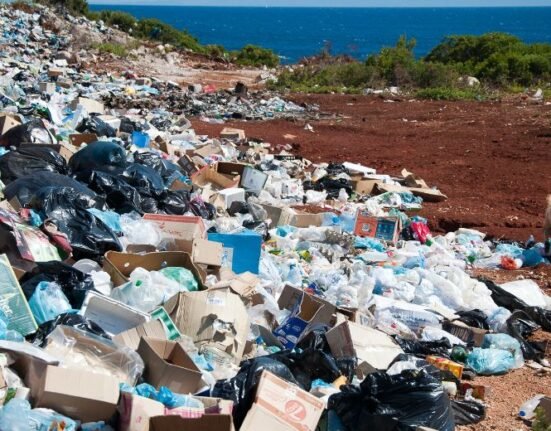HQ Team
April 21, 2023: Polypropylene, a commonly used plastic and hard to recycle, has been successfully biodegraded by researchers at the University of Sydney.
The researchers used two common strains of fungi, Aspergillus terreus and Engyodontium album, to biodegrade polypropylene in the laboratory. The fungi were able to break down polypropylene after it had been pre-treated with either UV light or heat, reducing the plastic by 21 percent over 30 days of incubation, and by 25-27 percent over 90 days.
“Polypropylene is a common plastic used to make a huge variety of everyday products like food containers, coat hangers and cling film, but it only has a recycling rate of only one percent, meaning it is overrepresented in plastic waste and pollution globally,” said the study’s lead author from the University of Sydney’s School of Chemical and Biomolecular Engineering, PhD student Amira Farzana Samat.
“Plastic pollution is by far one of the biggest waste issues of our time. The vast majority of it isn’t adequately recycled, which means it often ends up in our oceans, rivers and in landfill. It’s been estimated that 109 million tonnes of plastic pollution have accumulated in the world’s rivers and 30 million tonnes now sit in the world’s oceans – with sources estimating this will soon surpass the total mass of fish,” said Mrs Samat.
Polypropylene has a short life as a packaging material and it is often contaminated by other materials and plastics, which makes it difficult to be recycled. Hence, new recycling methods with minimal environmental impact were needed to handle the waste.
Professor Dee Carter, an expert in mycology (the study of fungi) in the School of Life and Environmental Sciences and co-author of the study said: “Fungi are incredibly versatile and are known to be able to break down pretty much all substrates. This superpower is due to their production of powerful enzymes, which are excreted and used to break down substrates into simpler molecules that the fungal cells can then absorb.”
He added, “Recent studies suggest some fungi may even degrade some of the ‘forever chemicals’ like PFAS, but the process is slow and not yet well understood. There is also evidence that the amount of plastic accumulated in the ocean is less than what might be expected based on production and disposal levels, and there is speculation that some of this ‘missing’ plastic may have been degraded by marine fungi.”
Biodegradation process
Polypropylene was treated with ultraviolet light, heat, and Fenton’s reagent – an acidic solution of hydrogen peroxide and ferrous iron often used to oxidise contaminants.
Then the fungi were applied separately as single cultures to the treated polypropylene. The biodeterioration was measured through microscopy techniques. The research didn’t evaluate how the plastic was degraded by the fungi and the researchers hope to conduct further research to register the type of bio-chemical processes taking place.
The researchers hope to improve the degrading process before seeking investment to scale the technology and develop a small-scale pilot prototype for commercialisation.
The research can be accessed here in Nature.



